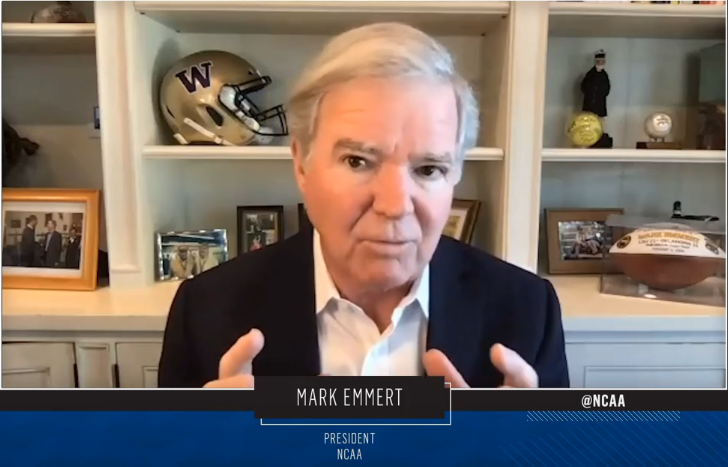NCAA President announces no fall championships
August 14, 2020
The NCAA President Mark Emmert announced Thursday via Twitter that there would not be fall championships. However, this does not impact the football subdivision and WKU football.
As for Lady Topper soccer and volleyball, Emmert would intend for these programs to hold championships in the spring — although nothing is official from WKU Athletics yet other than what Emmert has stated.
Emmert joined NCAA digital reporter Andy Katz for episode 21 of the NCAA’s Looking Ahead series following the announcement.
In the 21 weeks that COVID-19 has had an effect on NCAA sports, Emmert addressed the importance of schools addressing the local health ordinances to make decisions on their season and whether they should play or not.
“I have to say that the schools have been doing a remarkable job,” he said. “They’ve been throwing a ton of resources, science, and energy at these problems to make sure they are doing everything possible to protect and support student-athletes.
“Schools and conferences are going to have to look at the data and the presidents at the end of the day are the decision-makers in each of these cases and they are coming to different conclusions for the time being.”
Emmert added that “one decision would be wrong.” State and local health officials are ultimately what will influence what school’s decisions are as far as fall sports goes.
A point of emphasis that Emmert wanted to address was the fact that student athletes’ mental health is of importance. The commitment level to these student athletes will not be reduced due to the postponement of the fall sports.
“Let’s instead think of it as a pivot toward winter and spring sports, let’s use the fall to focus on the physical and mental, the academic success of our student-athletes,” Emmert said. “We have to make sure we can be flexible in our rules so athletes can still have contact with their coaches, with their athletic department, that’s for most of them their psychological as well as their physical home.”
As far as testing goes, Emmert feels optimistic that there is enough brainpower and energy and money that is being put on the testing issue.
“We are months away, not days or weeks, but some months away from having much higher quality testing in terms as its reliability,” Emmert said. “As we move into the winter we can do much more frequent testing daily. It’s turned around in 15 minutes rather than 15 days.”
There is already more than 50% of the NCAA not participating which was the deciding factor on if there would be fall championships or not. No legitimate sport could have half of its teams decide not to play then carry on with the fall championships.
“Sadly that’s going to be the case this fall, full stop,” Emmert said. “That doesn’t mean that we shouldn’t and can’t turn toward winter and spring [sports] and say ‘how can we create a legitimate championship for those students?’
“My staff has been working hard and talking with all 32 commissioners. If schools and conferences want to move forward and more than half want to do it then let’s do it.”
Emmert shifted the main priority to the winter and spring sports who just had their seasons canceled and not able to finish regular season and championship play.
“They lost their championship last March,” Emmert said. “We made that horrible but necessary decision to shut down. We want to make it work for these students, that’s what we’re trying to do.”
Concluding his time on the Looking Ahead series, Emmert shed light on what he sees ahead of the 2021 year and hopes that it could be a better year for college sports.
“We may not be having competitions but that doesn’t mean it’s a lost semester,” Emmert said. “It can be really good for our students and then we can figure out how we do competitions and how we do championships in the winter and spring. This is all possible. Hard, but possible.”
Sports Editor Nick Kieser can be reached at [email protected]. Follow Nick on Twitter at @KieserNick.













